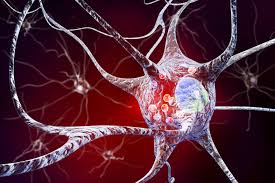10 October 2025 | Friday | News

ABLi Therapeutics (“ABLi”), a biotechnology company developing therapeutics to address diseases that arise from activation of Abelson Tyrosine Kinases (c-Abl kinases), announces final trial results from the Phase 2 “201 Trial” (NCT05424276) evaluating risvodetinib in patients with untreated Parkinson’s disease (PD), meeting its primary endpoint in safety and tolerability demonstrating risvodetinib safe and well-tolerated with a side-effect profile similar to placebo. These results were presented as the “Clinical Breakthrough Lecture” during the keynote session at the 2025 Movement Disorders Society Annual Congress.
The 201 Trial is the first long-term dosing trial evaluating the selective, brain-penetrant c-Abl kinase inhibitor risvodetinib as a monotherapy in untreated PD. The trial evaluated a 50 mg, 100 mg or 200 mg dose in 126 participants randomized 1:1:1:1 to either a dose of risvodetinib or placebo given once daily for 12 weeks. Risvodetinib’s human exposure is two-fold to 200-fold higher than any c-Abl inhibitor currently approved for human use, necessitating the need to establish safety at 12-weeks before embarking on a registrational studies to measure the effect of Risvodetinib on the progress of disease.
Risvodetinib met the primary endpoint in safety and tolerability:
Risvodetinib impacted key secondary endpoints related to the Activities of Daily Living, the most important metric for evaluating clinical benefit:
Exploratory endpoints demonstrated Risvodetinib reduced alpha-synuclein pathology in skin biopsy at all doses:

“The outcomes of the 201 Trial were wholly unexpected,” noted Dr. Milton Werner, Chairman & Chief Executive Officer of ABLi Therapeutics. “We had seen a good safety profile with 7-day dosing, but didn’t anticipate the drug would have an adverse event profile similar to placebo at longer dosing durations, with none of the typical side-effects of other drugs in the class. A preliminary insight into clinical benefit may have been seen from secondary functional assessments, but the trial was not designed to measure efficacy. We think the most important measure beyond safety is the confirmation that Risvodetinib can reduce the alpha-synuclein pathology that drives Parkinson’s disease. This outcome is the first measure of an experimental treatment reducing the disease-causing pathology of PD,” said Dr. Werner “Since the Trial’s completion, we have used new blood-borne biomarkers to establish that the underlying treatment rationale, first elucidated by ABLi and its collaborators from animal models, is also the active mechanism of neurodegeneration in humans.”
© 2026 Biopharma Boardroom. All Rights Reserved.